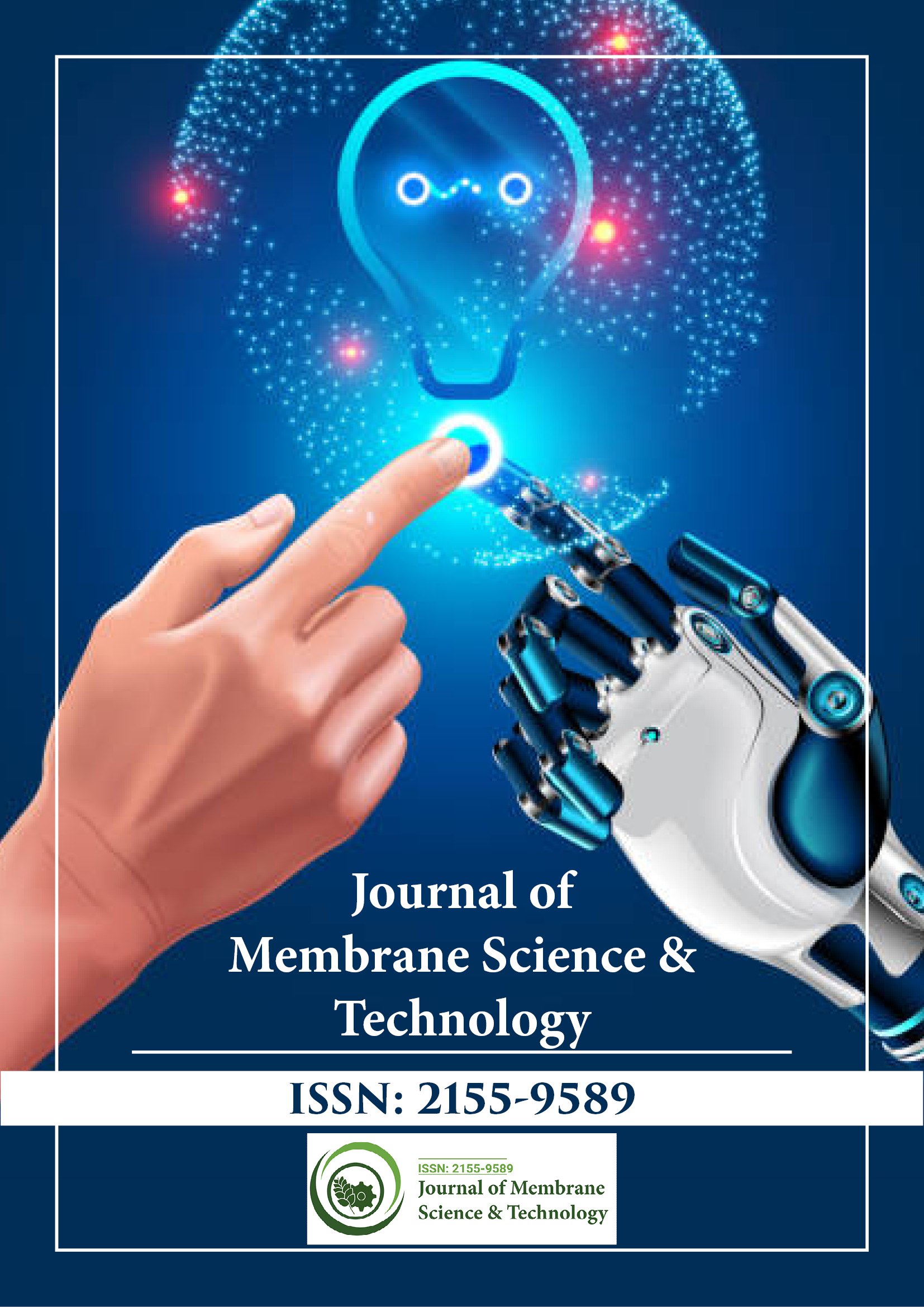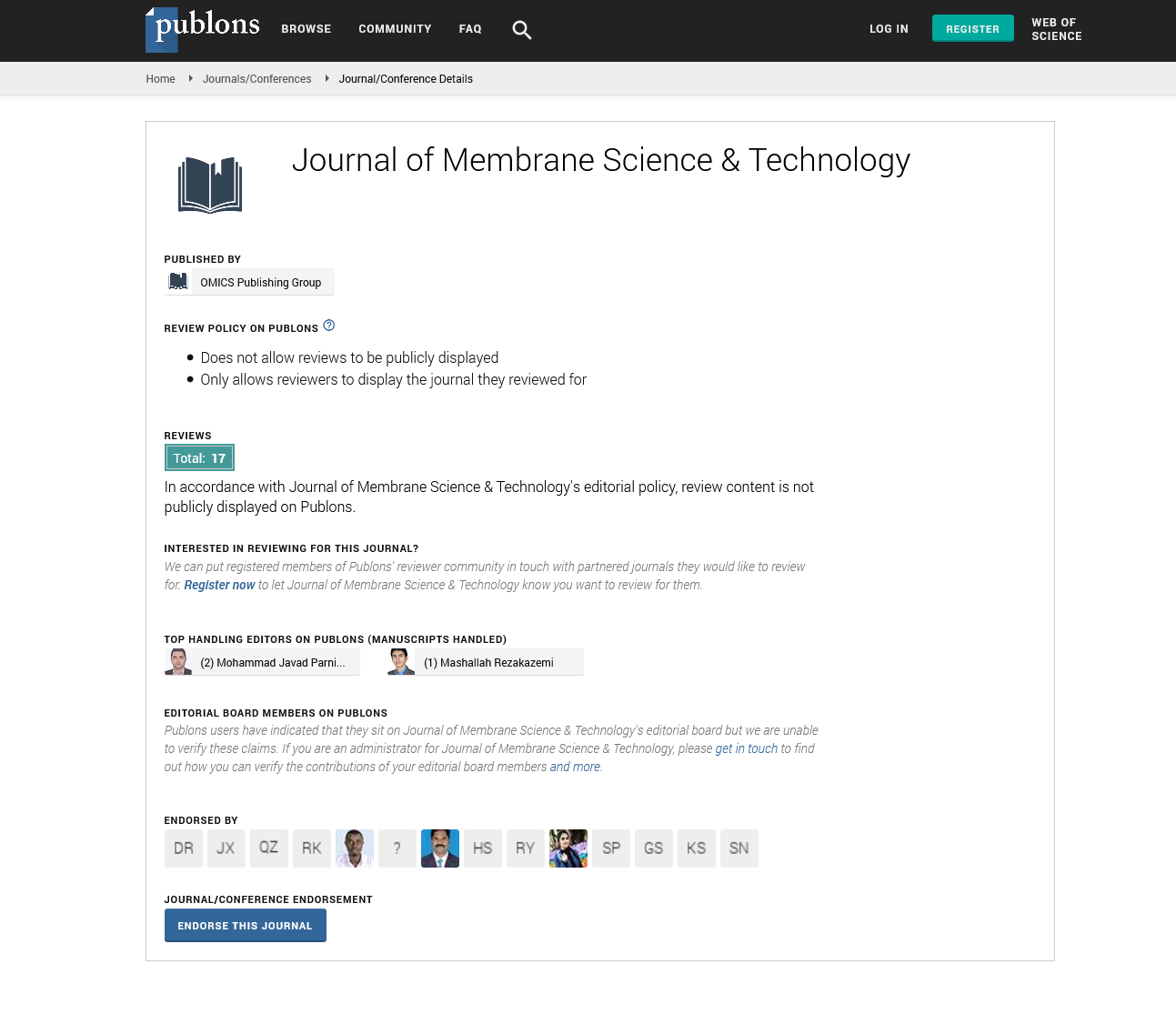Indexed In
- Open J Gate
- Genamics JournalSeek
- Ulrich's Periodicals Directory
- RefSeek
- Directory of Research Journal Indexing (DRJI)
- Hamdard University
- EBSCO A-Z
- OCLC- WorldCat
- Proquest Summons
- Scholarsteer
- Publons
- Geneva Foundation for Medical Education and Research
- Euro Pub
- Google Scholar
Useful Links
Share This Page
Journal Flyer

Open Access Journals
- Agri and Aquaculture
- Biochemistry
- Bioinformatics & Systems Biology
- Business & Management
- Chemistry
- Clinical Sciences
- Engineering
- Food & Nutrition
- General Science
- Genetics & Molecular Biology
- Immunology & Microbiology
- Medical Sciences
- Neuroscience & Psychology
- Nursing & Health Care
- Pharmaceutical Sciences
Reverse osmosis water desalination in Qatar
2nd International Conference on Membrane Science and Technology
September 13-14, 2018 | London, UK
Syed Mohammed Javaid Zaidi
Qatar University, Qatar
Keynote: J Membr Sci Technol
Abstract:
Qatar has been experiencing rapid infrastructure development and population growth, which led to the exponential growth in water demand and desalinated water production. Although major desalination processes in Qatar are based on thermal technology, now the trend is shifting to the membrane based reverse osmosis (RO) processes due to environmental factors and energy efficiency. Two major RO desalination projects are underway in Qatar. The Ras Abu Fontas project built at a cost of QR1.75 billion will have a capacity to provide 36 MIGD (164,000 m3/day) of desalinated water daily to meet the needs of about 1 million people in the country. Umm Al Houl will produce 284,000 m3/day per and will reach 614,000 m3/day after the start-up of the new facility. This is the first time that reverse osmosis technology has been used on a large-scale production plant in Qatar. Previous implementation of RO in Qatar has been limited and on small scale, such as the trial in Dukhan, where 750 m3/day of high salinity water was treated for boiler feedwater. The highlights of the RO desalination plants in Qatar are coagulation, dissolve air floatation, sedimentation, UF, granular media filtration, multi-stage RO units (pass, trains etc.) and high pressure multistage centrifugal pumps with energy recovery device (ERD). Qatari waters are very complex with highest salinity in the Gulf Cooperation Council (GCC) region and high level of colloids and organic matter. A systematic interpretation of critical combinations of feed water, pretreatment and membranes and adequate conclusions can avoid setbacks of reverse osmosis processes. This presentation focusses on the RO challenges in Qatar such as turbidity issues, membrane fouling and pretreatment and can be resolved through proper operation and maintenance of the RO plants. Recent Publications 1. Alaa H Hawari, Abdulaziz Al-Qahoumi, Amina Ltaief, Syed Javaid Zaidi and Ali Altaee (2018) Dilution of seawater using dewatered construction water in a hybrid forward osmosis system. Journal of Cleaner Production 195:365???373. 2. Sajeda A Al-Saydeh, Muftah H El-Naas and Syed Javaid Zaidi (2017) Copper removal from industrial wastewater: a comprehensive review. Journal of Industrial and Engineering Chemistry 56:35???44. 3. Shivanand B Teli, Abdelbaki Benamor, Mustafa Nasser, Alaa Hawari, Syed Javaid Zaidi, et al. (2017) Effects of amphiphilic pluronic F127 on the performance of PS/SPEEK blend ultrafiltration membrane: characterization and antifouling study. Journal of Water Process Engineering 18:176???184. 4. S M Javaid Zaidi, F Fadhillah, Z Khan and A F Ismail (2015) Salt and water transport in reverse osmosis thin film composite seawater desalination membranes. Desalination 368:202???213.
Biography :
Syed Mohammed Javaid Zaidi is Chair Professor of Chemical Engineering and QAFAC Chair in the Center for Advanced Materials, Qatar University. He has more than 20 years of research experience in the area of clean water and clean energy. He has extensive experience in the desalination research and has supervised more than 20 graduate students in clean water and clean energy. He has published more than 200 papers in international journals/book chapter, conference proceedings/presentations and has 14 US patents. He has conducted joint projects in RO desalination in collaboration with the Massachusetts Institute of Technology (MIT), USA for the development of nano-structured membranes for RO water desalination.
E-mail: szaidi@qu.edu.qa

